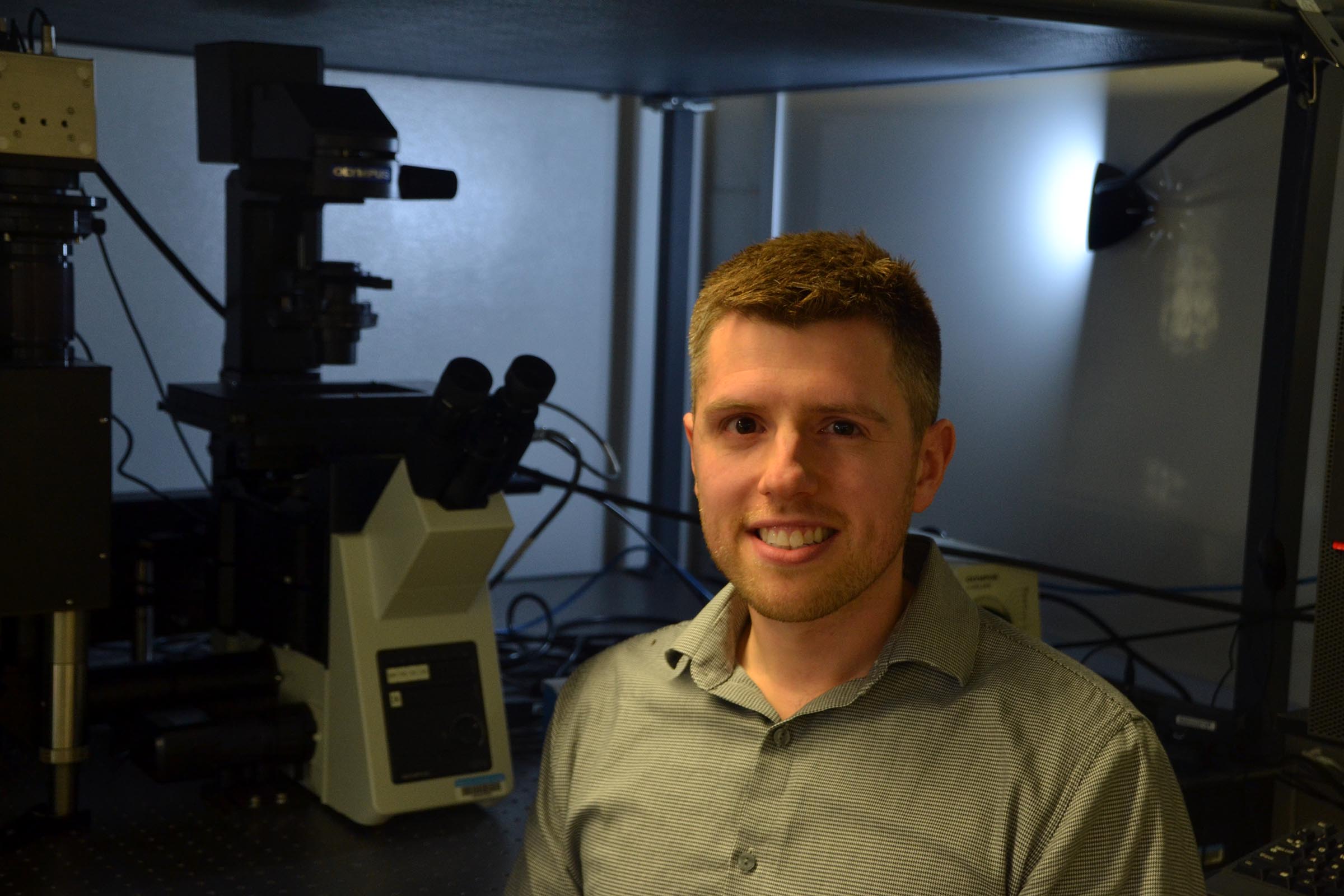KINGSTON, R.I., Sept. 20, 2017—The statistic from a “New England Journal of Medicine” study is staggering: More than one third of the world’s population is overweight or obese.
And that can cause serious health issues: Fat can accumulate in the liver and arteries, leading to hardening of the arteries, Alzheimer’s and even cancer.
Unfortunately, it’s challenging to diagnose the progression of these diseases, which benefit greatly from treatment at an early stage. The reason: detecting the accumulation of fat in individual cells is difficult, especially in live organisms.
A University of Rhode Island professor is part of a national research team that is tackling the problem by using nanotechnology, the science involving engineered materials 1/100,000th the width of a human hair, to pinpoint abnormal amounts of fat in live cells.
In a paper published Sept. 12 in the journal “ACS Nano,” Daniel Roxbury, chemical engineering assistant professor at the University of Rhode Island, and researchers from Memorial Sloan Kettering Cancer Center in New York and Weil Cornell Graduate School of Medical Sciences, report that they have created a nanosensor capable of detecting the progression of obesity-related diseases.
Roxbury and his colleagues found that certain formulations of carbon nanotubes—nanoscopic cylinders of carbon—were ingested by specific types of immune cells, similar to those in the liver and in arteries. The nanosensors detect the amount of fat inside the cells by changing the color, or wavelength, of infrared light that they give off.
“What’s really interesting is that the sensors function in live cells,” says Roxbury. “This enables us to monitor the progression of a disease as well as its reversal when we add an appropriate drug.”
The study was funded by the National Institutes of Health and the American Cancer Society.
“The prospect of extending this work to live animals and humans is exciting in the development of new drugs and monitoring disease reversal in patients,” says Roxbury. “Moving forward, our lab aims to engineer the most robust nanosensors for these kinds of applications.”
Roxbury, 32, a native of Flemington, N.J., joined URI a year ago, where he leads the NanoBio Engineering Laboratory. He received his bachelor of science degree and doctorate in chemical engineering from Lehigh University.
He did postdoctoral work at Memorial Sloan Kettering, where he was funded through an American Cancer Society postdoctoral fellowship. He focuses on the development, characterization

